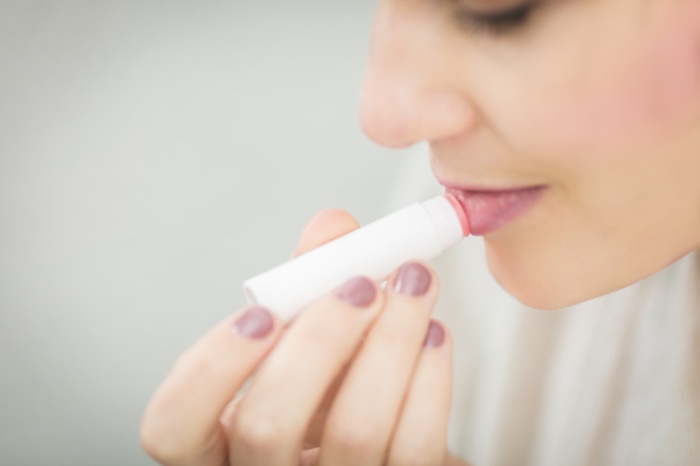
During the cold winter months, skin suffers. It can get dry, chapped, and even crack and bleed. And there may be no part of the body that suffers more than the lips.
That’s bad news, because you can’t hide them! Besides, the lips can enhance beauty, and when they look their best, they’re real confidence-boosters.
So what do you do if your lip balm isn’t working?
Why Your Lip Balm May be Bad for Your Lips
You know how it goes. You apply lip balm and apply lip balm, and still your lips are dry and chapped. You go to put on lipstick and it drags across the skin, or a few minutes later, exacerbates lines, cracks, and flaking skin.
Lip balms are supposed to help moisturize, hydrate, and smooth the lips, but unfortunately, many contain ingredients that can actually do the opposite:
- Alcohol: Those tingly lip balms that promise to plump or freshen often have alcohol in them, which can actually dry out lips.
- Petrolatum ingredients: Petroleum-based ingredients form a layer on the top of the skin, but don’t actually help moisturize them or heal them. It’s sort of like applying a layer of grease that will quickly wear off.
- Peppermint: It’s a healthy herb, but on the lips, it can be drying, surprisingly enough!
- Hyaluronic acid: This is a great ingredient to have in most skin-care items, but if you live in a dry climate, it may be working against you. The ingredient draws water in and holds it, but if the air is dryer than your lips, it could actually draw moisture from your lips, instead, resulting in dryer, chapped lips.
- Salicylic acid: This is a gentle exfoliator, and helps to slough off dead skin cells, but if not paired with super moisturizing ingredients, it can leave lips dry and irritated.
- Menthol and camphor: These ingredients can provide a tingly, fresh feeling, but they also can create irritation and dryness.
- Synthetic flavorings: Those flavored lip balms may taste good, but added flavorings are made up of unknown chemicals that can irritate and dry lips.
In addition to watching out for these ingredients, it’s also important to look at the solution as a whole. Some lip balms may contain helpful moisturizing ingredients, but lack protective ingredients. The lips gain moisture, but then continue to dry out in the future because nothing is protecting them.
How to Choose a Quality Lip Balm
How do you find a lip balm that will actually help heal and protect your lips? Look first for quality manufacturers that care about the ingredients they use. Then avoid products with the ingredients listed above, and look for these basic characteristics instead:
- Natural oils: Oils are easily absorbed by the skin, and are rich in essential fatty acids that help deeply moisturize. Look for coconut, olive, jojoba, almond, sunflower, avocado, rose hip, sea buckthorn, and others.
- Shea butter: This is a rich, heavy moisturizer that helps restore lips while soothing any irritation. It’s linked with helping wounds to heal.
- Honey: Honey is a traditional moisturizer, and also has been found in studies to help encourage wound healing. That means it may help you get rid of that dry, cracked skin.
- Antioxidants: These can help protect your lips from environmental assaults, including the sun and air pollution. They neutralize any free radical attacks while providing a natural anti-inflammatory action as well.
- Healthy moisturizers: In addition to shea butter, it helps to have other moisturizers that nourish lips with essential fatty acids and help plump them up with added moisture.
Our Restorative Skin Balm works perfectly as a lip balm. It’s rich in natural oils, butters, and emollients like squalane and castor seed oil, which help safeguard the moisture barrier and product the lips from losing moisture. It’s also formulated with antioxidant ingredients like Reishi mushroom, turmeric, chamomile, and arnica to help tame irritation and inflammation and encourage wound healing.
Other Tips for Smooth, Soft Lips
In addition to finding the right lip balm, follow these tips to maintain soft, supple lips throughout the winter months and beyond.
- Exfoliate: A buildup of dead skin cells on the lips can cause your lip balm to work less effectively. Just like you exfoliate the skin on your face, you need to exfoliate dead, dry skin off your lips, too. Use a gentle sugar scrub. You can either purchase one, or mix one of your own with brown sugar and honey. Use at least once a week.
- Eat more fish: Fatty fish are rich in healthy omega-3 fatty acids, which have been linked with improving skin conditions like psoriasis and eczema. If you can’t eat several servings a week, try a fish oil supplement.
- Put a humidifier in your room: Your lips are likely to dry out while you sleep overnight. Installing a humidifier in your bedroom can help prevent this.
- Drink more water: If you’re even slightly dehydrated, it will show up quickly on your lips. Try to drink eight glasses of water per day. It’s harder in the winter, as your thirst cues aren’t as active, so remind yourself to drink when you need to.
- Apply a rich moisturizer before bed: We are used to applying lip balm during the day, but often neglect our lips at night. Make it a habit to apply your night cream to your face, then apply a rich balm to your lips before retiring.
- Avoid long-wear lipsticks: These are the most drying of all lipstick types. Even regular lipsticks tend to dry out the lips, so try to find natural brands that are more moisturizing.
- Use scarves: When you go outside into the cold, windy weather, your lips are one of the first areas to be assaulted. Cover them up with a scarf to protect them.
How do you protect your lips in the cold winter months?

